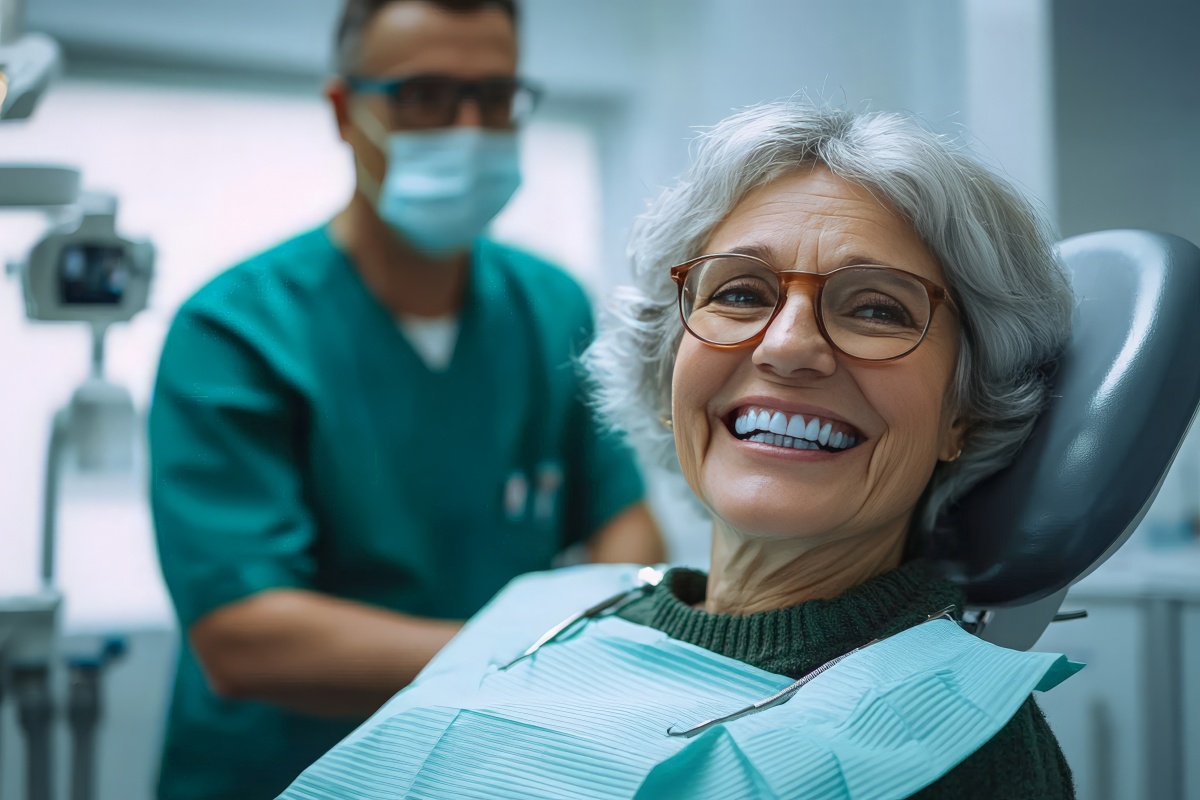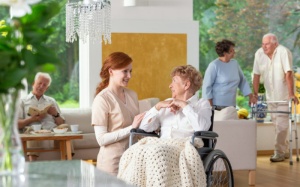Click here to download a pdf of the article.
Oral health is essential for overall wellness and quality of life, especially for residents in skilled nursing facilities who face significant risks when dental care is neglected.
Poor oral hygiene is linked to a range of chronic health issues, including heart disease, stroke, high blood pressure, respiratory conditions, and diabetes. Prioritizing oral care and preventing periodontal disease can help mitigate these systemic complications, ultimately reducing the need for costly treatments and hospitalization.1
Proactive onsite oral care is one of the most valuable services skilled nursing facilities can offer, fostering both better health outcomes and enhanced resident experience. Minimizing focus in this area should not be an option.
Three mainstays of proactive onsite oral care
Implementing effective onsite dental care in skilled nursing facilities demands specialized knowledge and skills. A successful program revolves around three core best practices:
1. A resident-centered model of care:
Research confirms that empathic and humanistic care enhances health outcomes.2,3 In the skilled nursing settings, resident-centered care begins with actively listening to each resident’s unique needs and perspectives. By integrating oral health with the individual’s psychosocial and clinical needs, providers can identify and address dental issues before they impact overall health.
When skilled nursing facilities partner with experienced dental care providers like Aria Care Partners, they benefit from a team with a proven track record of working effectively with older and medically vulnerable populations. These professionals understand the unique challenges of skilled nursing facility residents and collaborate seamlessly with internal staff. They are skilled at addressing the physical, sensory, and cognitive challenges that can complicate daily oral care and communication during dental visits. Their ability to foster comfort and respect for residents’ preferences encourages compliance and oral care.
2. Consistent routine care:
Regular assessments, corrective measures, and emergency assistance are crucial to maintain good oral health. However, prevention is paramount, and four to six cleanings annually provide the best defense against serious health complications. Many residents experience chronic issues such as tooth sensitivity, dry mouth, bleeding gums, receding gumlines, burning tongue, and tooth decay. Additionally, conditions like acid reflux, sleep apnea, low bone density, autoimmune diseases, and others significantly impact oral health. Routine onsite cleanings address dental concerns that influence residents’ eating habits, sleep, mood, and behavior. A proactive onsite prophylaxis schedule prevents small issues from escalating into serious problems. Furthermore, regular dental appointments enable early detection of systemic conditions, potentially allowing for more timely, cost-effective interventions.4
3. Portable equipment and advanced technologies:
Ancillary dental service providers bring dentistry to skilled nursing facilities. Equipped with the latest tools – including sterile cleaning kits, dental delivery units with self-contained suction and highspeed tools, and portable x-ray machines that capture quality dental images – onsite dentistry becomes a practical reality. The program also leverages 3D printing technology to produce custom dentures and partials tailored to the resident’s mouth and utilizes electronic medical records for seamless documentation. These portable technologies create a gateway to comprehensive oral health examinations and treatments without requiring the residents to leave the facility, providing convenience, efficiency, comfort, and improved oral health outcomes. Most importantly, onsite dentistry ensures residents receive consistent and necessary dental care.
In summary, three out of five adults aged 65 years and older suffer from gum disease,5 a compelling case for proactive dental care. The strong link between oral health and systemic diseases is now well established. Bringing dental services directly to residents helps skilled nursing facilities prevent issues before they arise or worsen. Ultimately, proactive onsite dental care greatly enriches the resident experience.
References
 Home Page
Home Page Home Page
Home Page

 Share to Twitter
Share to Twitter
 Share to Linked In
Share to Linked In




